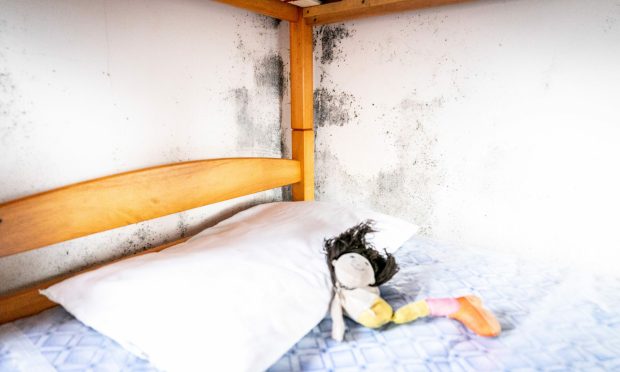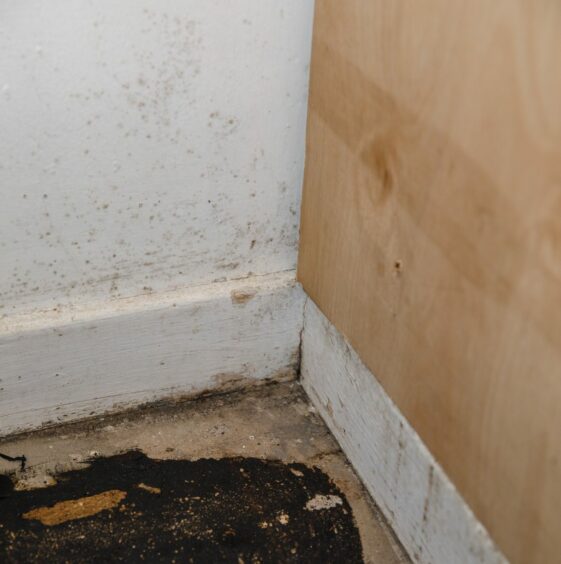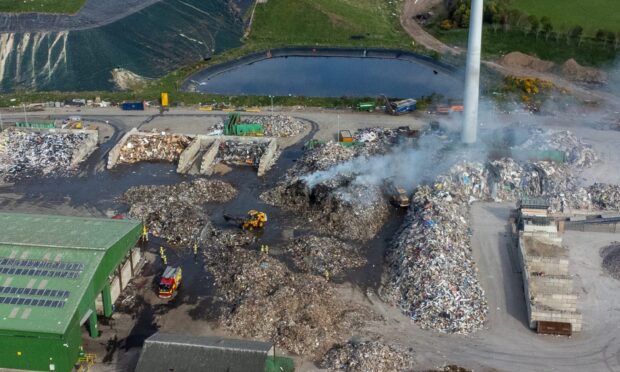Fife Council has pledged to stop blaming tenants as it works to tackle hundreds of complaints about damp housing.
Condensation and dampness referrals in the region have increased by 400%, with almost 600 outstanding complaints.
The housing service has now said reports will be dealt with more quickly.
The Courier has previously highlighted the case of a mum from Burntisland, who felt suicidal from living in a mouldy council flat.
And another from Crail feared for her children as mould spread through every room.
The council has reviewed how it deals with damp and mould in its properties following the death of two-year-old Awaab Ishak in Rochdale, Greater Manchester in 2020.
A coroner ruled that he died of a respiratory condition caused by exposure to mould.
Following his death Awaab’s family called for legislation to stop further deaths from mould in homes.
Fife Council’s head of housing John Mills said: “Dampness and condensation have been areas of concern for the council for some years.”
Fife Council action to tackle damp and condensation
The council has almost finished an audit of all outstanding cases.
And a dedicated group of staff has been set up to provide a fast response to damp and mould complaints.
Training on condensation, dampness and mould is being provided to all relevant staff.
In addition, information on the new approach and advice on how to reduce incidences of condensation is being prepared for tenants.
Mr Mills said the plan was to shift away from the culture of blaming tenants and instead offer them advice and support.
Staff will also be proactive rather than waiting for people to complain.
They will survey the housing stock for condensation and black mould before it becomes a serious issue.
Cost-of-living crisis making situation worse
Mr Mills said damp was relatively easy to deal with but condensation was more problematic.
He said the cost-of-living crisis was making matters worse.
“With the cost of energy, the highest in living memory, tenants are struggling to keep themselves and their homes warm and are reluctant to adequately heat and ventilate their properties for fear of losing the valuable heat they have generated,” he said.
“Unfortunately, these are the ideal conditions to create condensation and, if
left long enough, to generate black mould growth.”
Tenants struggling to pay fuel bills will be referred to energy advisors for help.
Housing staff can also make discretionary fuel top-ups for vulnerable people.
Mr Mills added: “The death of Awaab Ishak has been a shock to everyone in the Housing Sector and confirms that poor housing conditions, if left untreated, can lead to significant health impacts, including death.
“Governments, regulators and social landlords are now stepping up to ensure that a higher priority and more effective approaches are adopted to ensure this never happens again.”













Conversation